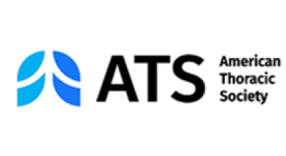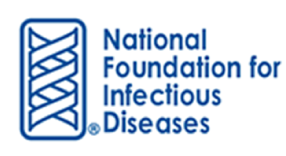Clinical Trials
Enanta is committed to the development of novel treatments for viral infections for patients with serious medical conditions. Enanta has active clinical trial programs in respiratory syncytial virus (RSV).
If you are interested in learning more about Enanta’s current and future clinical trials, please contact: patientinfo@enanta.com
Through clinical trials we are advancing novel therapeutics for significant respiratory infections.
Respiratory Syncytial Virus

Read More »
Therapeutic: Zelicapavir (EDP-938), in clinical development as a potential treatment for RSV infection
Trial Status: Enrollment Complete
Trial Information: The Phase 2b, randomized, double-blind, placebo-controlled, multi-center, global study is designed to evaluate the effect of zelicapavir compared with placebo on the progression of RSV infection by assessment of clinical symptoms. Approximately 180 patients will be treated with 800 mg of zelicapavir or placebo for five days and evaluated for 28 days thereafter.
The study will include non-hospitalized adults with up to 72 hours of respiratory tract infection symptoms who test positive for RSV and negative for influenza virus and SARS-CoV-2. To be included in the study, the patient must have at least one of the following conditions that predispose them to complications after RSV infection: age ≥65 years, congestive heart failure (CHF), asthma or chronic obstructive pulmonary disease (COPD). The patient must have a new onset of any of the following symptom(s) or worsening of preexisting symptom(s) consistent with a respiratory tract infection no more than 72 hours prior to the administration of the first dose of study drug: feeling feverish, headache, neck pain, fatigue, loss of appetite, interrupted sleep, body aches, sore throat, nasal congestion, cough, cough with phlegm, wheezing, or short of breath. The patient must have at least two of the following symptoms, one of which must be reported as at least ‘moderate’ severity: cough, cough with phlegm, wheezing, or short of breath.
The primary endpoint of the study is time to resolution of RSV lower respiratory tract disease symptoms as assessed by the Respiratory Infection Intensity and Impact Questionnaire (RiiQ™) symptom scale through Day 33. Additional secondary endpoints include additional clinical efficacy measures and antiviral activity compared to placebo, pharmacokinetics, and safety of zelicapavir.
For more information, visit ClinicalTrials.gov Identifier: NCT05568706
Expanded Access Policy
At Enanta, we are dedicated to discovering and developing safe and efficacious treatments for life-threatening viral infections. We understand the significant impact serious viral infections can have on patients and their caregivers. We are committed to making our therapies available to as many patients as possible, as safely and quickly as is feasible.
Our ongoing clinical trial programs, used to support regulatory approval, are the most effective way to access an Enanta investigational medication. Enanta encourages patients to speak with their treating physicians about participating in a clinical trial, when possible. You can find additional information about Enanta’s ongoing clinical trials on our website or by accessing www.clinicaltrials.gov
We understand that, in some cases, patients may not be eligible for clinical trials and do not have other treatment options. When enrollment into a clinical trial is not an option, and where all currently available treatment options have been exhausted, an investigational medicine may be provided prior to regulatory approval or commercial availability, under a provision referred to as “Expanded Access” by the U.S. Food and Drug Administration (FDA).
Read More »
Per FDA, Expanded Access may be appropriate when all of the following apply:
- Patient has a serious or immediately life-threatening disease or condition.
- There is no comparable or satisfactory alternative therapy to diagnose, monitor, or treat the disease or condition.
- Patient enrollment in a clinical trial is not possible.
- Potential patient benefit justifies the potential risks of treatment.
- Providing the investigational medical product will not interfere with investigational trials that could support a medical product’s development or marketing approval for the treatment indication.
At this time, Enanta will make its investigational medicines available on an Expanded Access basis prior to regulatory approval, if the above conditions apply, as well as the following criteria are met:
- Adequate clinical data exist to support the appropriate dosing regimen of the investigational medicine and duration of treatment in the disease or condition.
- The company has an adequate supply of the investigational product to meet the needs of the expanded access program without impairing ongoing development, including ongoing and planned clinical trials.
- It should be logistically feasible for the company to provide the patient with the investigational drug.
- The requested use complies with applicable laws and regulations.
All requests for Expanded Access must come from a patient’s treating physician and will be evaluated by a multidisciplinary team and responded to on a case-by-case basis. Qualified and licensed physicians may make such requests at patientinfo@enanta.com. We target acknowledging receipt of requests as soon as possible and in most cases within two (2) business days. The requesting physician must agree to obtain appropriate regulatory and ethics committee approvals, and to comply with all other regulatory, safety, monitoring, and patient consent requirements.
Early access may be discontinued when approval of the drug is achieved in the patient’s country, subject to any legal or regulatory requirements. Similarly, expanded access may be discontinued if the benefit of treatment does not outweigh the risk or if any of the original required criteria are no longer met.
Enanta may revise this Expanded Access Policy at any time. The posting of this policy by Enanta shall not serve as a guarantee of access to any specific investigational medicine by any individual patient.





